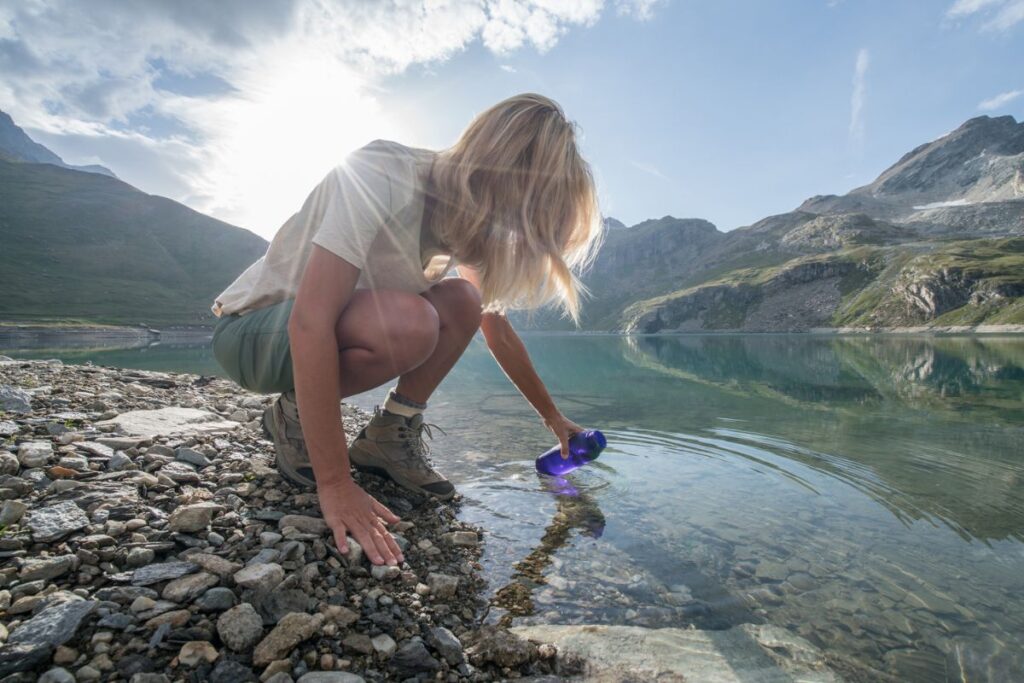Traveling doesn’t have to come at the expense of the planet. By making thoughtful decisions, you can still explore incredible places while protecting the environment and supporting local communities. Sustainable travel isn’t about sacrificing fun—it’s about adding meaning to your adventures and leaving a positive impact wherever you go.
Pack Light and Smart
Packing light doesn’t just make your trip easier—it’s also better for the planet. Heavier luggage means planes and vehicles use more fuel, so sticking to the essentials can help reduce your carbon footprint. Bring reusable items like a water bottle, travel cutlery, and tote bags to avoid creating unnecessary waste during your trip. A lighter bag also means you’ll move around more freely, so it’s a win-win for you and the environment.
Choose Eco-Friendly Transportation
Whenever possible, opt for trains, buses, or biking instead of flying or driving solo. These modes of transport emit far less carbon, and they often give you better views along the way. If you must fly, try booking direct flights since takeoffs and landings use the most fuel. Once you arrive, take public transportation or walk to explore—it’s cheaper, greener, and often more fun.
Stay at Eco-Conscious Accommodations
Choose hotels, hostels, or short-term rentals with eco-friendly practices like recycling programs and energy-efficient appliances. Look for places that source food locally, use renewable energy, or are certified for sustainability. Staying in locally owned accommodations also supports the local economy and gives you a more authentic experience. By choosing thoughtfully, your stay can be as kind to the planet as it is enjoyable for you.
Support Local Businesses
Shopping, dining, and booking tours with local businesses keeps your money in the community and boosts the local economy. Instead of chains, look for family-owned shops, street markets, and restaurants serving authentic cuisine. Supporting small businesses helps preserve local culture and reduces the environmental impact of large-scale tourism. Plus, you’ll often find more unique and memorable experiences along the way.
Respect Wildlife and Natural Spaces
Interacting with nature is one of the best parts of traveling, but it’s important to do so responsibly. Avoid activities like elephant rides or swimming with captive dolphins, as they often exploit animals. Instead, choose ethical wildlife tours that prioritize conservation and observe animals in their natural habitats. Always follow Leave No Trace principles by staying on marked trails and leaving nature exactly as you found it.
Limit Single-Use Plastics
Single-use plastics are one of the biggest contributors to pollution, especially in tourist hotspots. Bring a reusable water bottle, metal straws, and travel utensils to avoid adding to the problem. Many airports, hotels, and cities now offer refill stations to make it easier for travelers to ditch disposable plastics. These small, simple changes can have a big impact on reducing waste.
Conserve Energy and Water
Being mindful of energy and water use is just as important on the road as it is at home. Turn off lights, air conditioning, and electronics when you leave your room, and unplug chargers when not in use. Reuse towels and limit shower time to save water, especially in areas experiencing droughts. Little habits like these help reduce the strain on local resources and protect the environment.
Choose Sustainable Tours and Activities
Not all tours and activities are created equal, so do your research before booking. Look for operators that hire local guides, give back to the community, and minimize their environmental footprint. Avoid tours that harm the environment or exploit cultural heritage for profit. Choosing sustainable options means your adventures will leave a positive impact on the places and people you visit.
Learn About Local Culture
Taking time to understand the culture of your destination shows respect and helps you avoid unintentional mistakes. Learn a few key phrases in the local language, dress appropriately for the area, and be mindful of cultural norms. Engaging with locals and their traditions adds depth to your travel experience. When you respect and celebrate the culture, you’ll build meaningful connections that stay with you long after your trip.
Offset Your Carbon Footprint
For flights or other unavoidable emissions, consider offsetting your carbon footprint through trusted programs. Many companies allow you to fund renewable energy projects or reforestation efforts to balance out your travel impact. While it’s not a perfect solution, it’s a step toward making your trip more sustainable. Offsetting is a simple yet meaningful way to take responsibility for the environmental cost of your adventures.
Sustainable travel is all about being mindful of the choices you make and their impact on the world. By supporting local communities, respecting nature, and making eco-friendly decisions, you can explore responsibly while protecting the planet. The best part? You’ll leave each destination better than you found it and make your travels even more rewarding. Safe travels!

